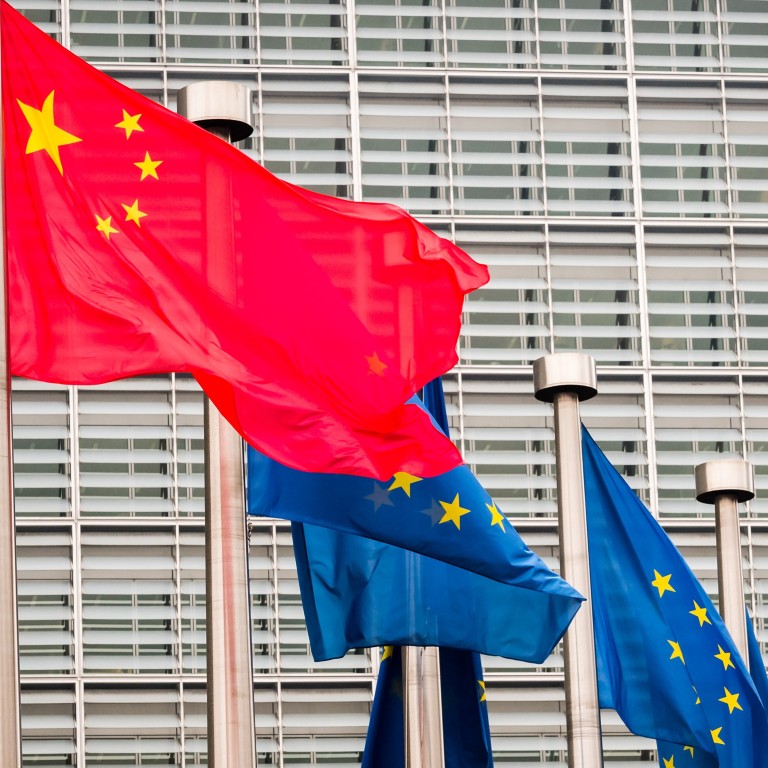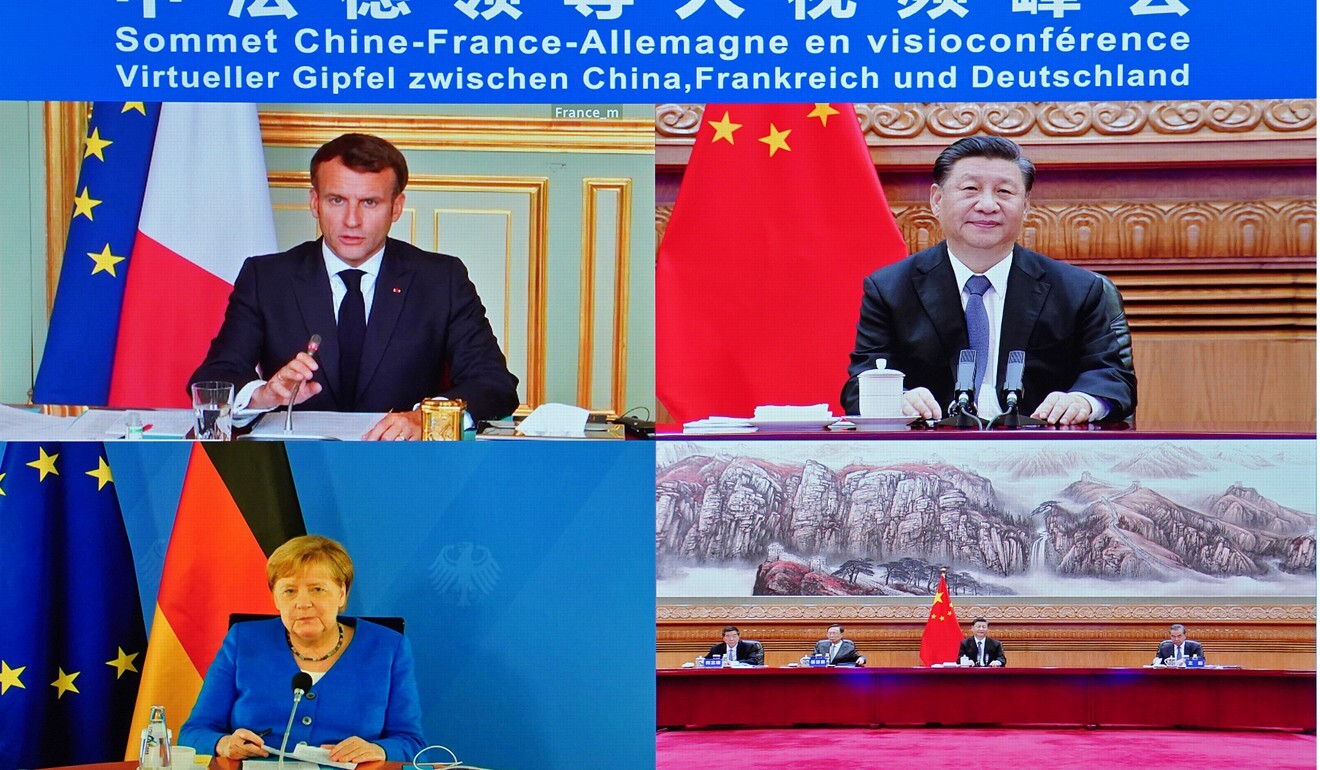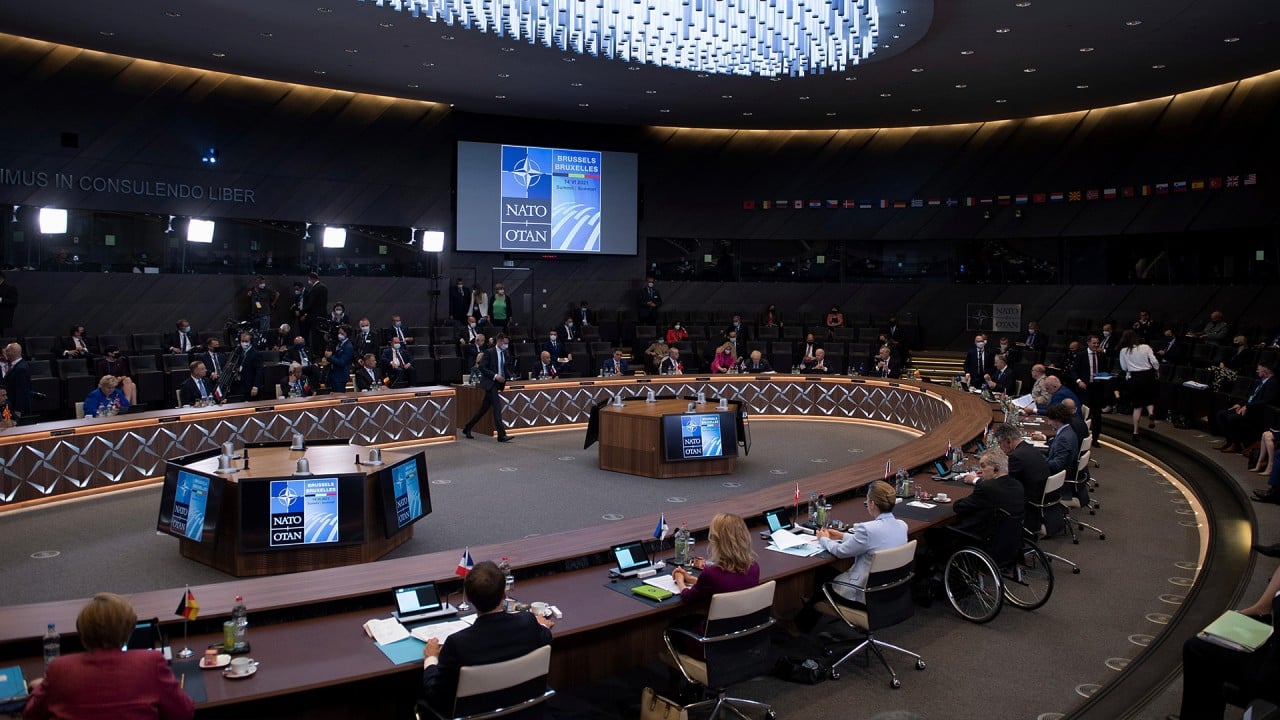
Xi Jinping talks up cooperation but it may not ease tensions with Europe, analysts say
- President tells French and German counterparts that ‘China’s biggest hope is to develop itself and not to replace others’
- Observers say meeting is a positive step but relations with ‘other EU member states and the EU as a whole require significant repair’
There was little in the way of detail or timelines but the stress was on “cooperation” – a word repeated 13 times in the Chinese foreign ministry’s readout from the call.

After Monday’s video call, China’s foreign ministry said Macron and Merkel had supported the revival of the agreement. Xi also told the two leaders that “any international affairs should be discussed in a reasonably calm manner”, according to the Chinese statement.
In addition, he said “China’s biggest hope is to develop itself and not to replace others” – an apparent response to US efforts to build a coalition of allies to counter Beijing.
Ding Chun, director of the Centre for European Studies at Fudan University, said the meeting was a positive step for the strained relationship.
China accuses EU of making ‘unacceptable’ demands over Xinjiang visit
“The EU’s concerns about China – including China’s role in global governance, human rights issues – have been long-standing … however, at least this shows that the two sides both believe in cooperation,” Ding said. “The current political atmosphere is still bad, but being able to talk about economic cooperation means there’s still some positivity about the [Comprehensive Agreement on Investment] … instead of it being completely set aside.”
Kong Tianping, a senior researcher with the Institute of European Studies at Beijing’s Chinese Academy of Social Sciences, said the call was significant.
“Despite the US efforts to align with the EU, the most influential EU leaders are still in top leadership talks with China,” Kong said. “Although the US does have common interests with Europe, they are not completely aligned. Europe is not willing to get involved in this new cold war,” he said. “Europe has its own interests, especially commercial interests.”

06:33
G7, Nato rhetoric mark ‘seismic shift’ between China and the West
Thorsten Benner, director of the Global Public Policy Institute in Berlin, noted the different emphasis in statements from the three countries after the meeting.
“For President Xi the emphasis seems to have been to argue against a joint G7 stance on China and stress many opportunities for cooperation between Europe and China,” Benner said.
EU envoy urges China to bridge ‘trust deficit’ to revive investment deal
The talks may not have done much to improve China’s relations with Europe, according to Emilian Kavalski, a professor of China-Eurasia relations at the University of Nottingham Ningbo.
He also noted that changes expected in Europe – including Merkel stepping down in September and the French presidential election next year – would be factors in shaping the relationship.
“Merkel and Macron are probably two of the very few leaders in the EU who are still interested in pragmatic relations with China. Yet, Macron is likely to be increasingly distracted by domestic issues, while nearly all the candidates for the German chancellery have been quite vocal both on Beijing’s human rights record and extremely critical of Merkel’s perceived bonhomie with China,” he said. “I doubt that the call was particularly helpful with either moving on the CAI or any of the other hot-button issues in Europe-China relations.”
He added that it was “China’s relations with the other EU member states and the EU as a whole that require significant repair”.
Noah Barkin, the Berlin-based managing editor at Rhodium Group, said other issues were likely to affect ties in the coming months.

